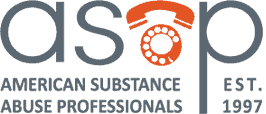By: ASAP
Driving a commercial motor vehicle requires employees to follow the rules and regulations of the Department of Transportation (DOT). Once of the most common misunderstood regulations is the definition of actual knowledge. Employers are often confused as to what qualifies as actual knowledge under the DOT. Here is some clarification.
What IS actual knowledge?
• A direct observation of an employee physically using drugs and/or alcohol
• Admission by the employee of the use of drugs and/or alcohol (except in §382.121)
• Information provided by a previous employer of direct observation of the employee using drugs and/or alcohol
• Traffic citation while operating a commercial motor vehicle under the influence of alcohol or controlled substances
What is NOT actual knowledge?
• A direct observation of an employee’s behavior or physical movements, which would take you down the reasonable suspicion path
• An observation from a co-worker
• DUI/DWI while operating a personal vehicle
• Possession of drugs and/or alcohol while operating a commercial motor vehicle
Reporting Actual Knowledge in the FMCSA Clearinghouse
Under the regulations of the Department of Transportation (DOT), if an employer has actual knowledge that an employee used drugs and/or alcohol, that employee must be removed immediately from safety sensitive work. The employer is required to report the violation to the FMSCA Clearinghouse. When reporting the violation, it is important to provide evidence. This may include photographs, audio recordings, employee statements, or other forms to prove that the employer had actual knowledge of the employee’s actions.
Getting Back to Work
If an employee is subject to an actual knowledge violation, he/she is required to complete the DOT Return to Duty (RTD) process with a qualified DOT Substance Abuse Professional (SAP). This person will evaluate the employee’s circumstances and recommend treatment or education for him/her to complete. Upon the successful completion of those recommendations, the same SAP will re-evaluate the employee’s eligibility to be released for safety-sensitive work. Once he/she completes the SAP portion of the RTD process, the employee must also pass an observed RTD drug test administered by the employer or potential employer before returning to work.
American Substance Abuse Professionals, Inc. (ASAP), has a network of more than 5,000 qualified DOT SAPs throughout the United States and its territories. We match employees with a DOT SAP near them so they can return to work as quickly as they can comply with the process. Our clients have an 85% success rate in successfully completing the SAP process to be eligible to return to safety sensitive work with our guidance. The enrollment process is quick and easy. Call 888-792-2727 x177 to enroll today. #worksafely


